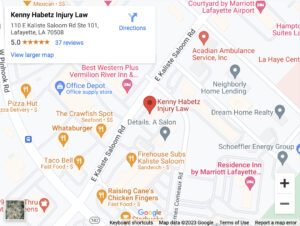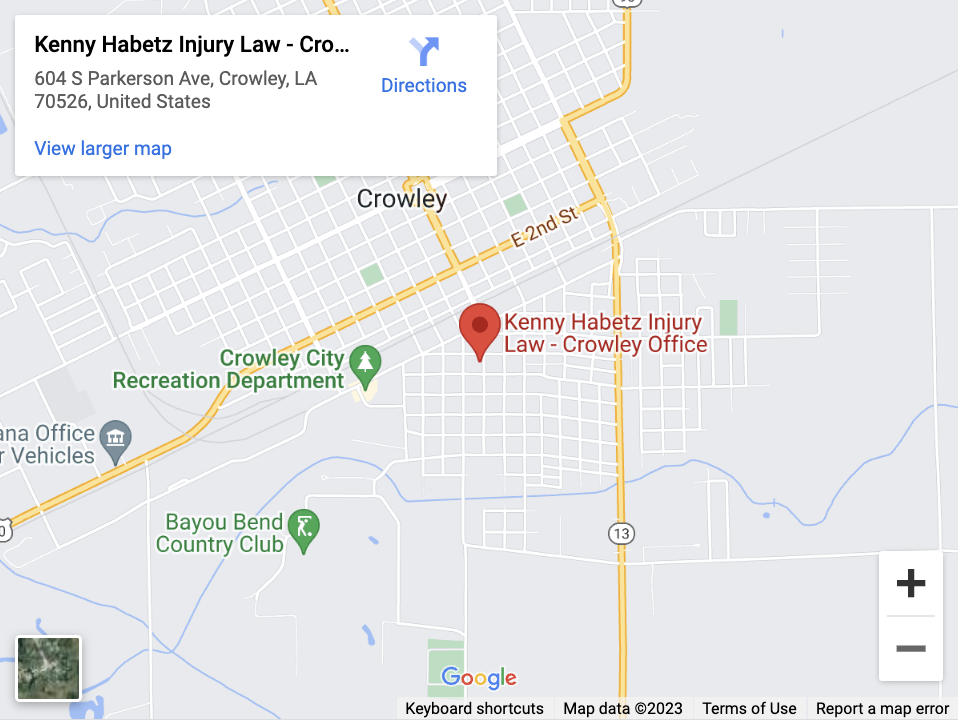
After an accident, you may be entitled to compensation for your injuries. However, getting that compensation will likely require filing a personal injury claim. Throughout your claim, you may encounter many terms that you are not familiar with. Below is a glossary of common personal injury terms so that you can be as knowledgeable about your claim as possible.
Definitions of Common Personal Injury Terms

When you pursue a personal injury claim, you’ll encounter legal language that may be unfamiliar. Knowing these terms will make the process less intimidating and help you better understand your rights. Whether it’s negotiating with insurance companies, preparing evidence, or filing a lawsuit, a clear grasp of the vocabulary used can empower you to stay involved and informed throughout your case.
Burden of Proof
Specifies which party to the claim must establish that their version of the facts is true. In personal injury claims, the plaintiff (victim) has the burden of proof to show that their case is true.
For instance, after a car accident, the victim has the burden of proof to show that the defendant was at fault.
Contingency Fee
A fee for legal services that is dependent upon the outcome of the case. Contingency fees are common in personal injury cases, and personal injury lawyers typically only get paid if they win the case. On average, fees in personal injury cases are about 35% of the total financial recovery.
Damages
The remedy used by a civil court to make an injured plaintiff whole again. Typically, damages come in the form of financial compensation.
Damages are typically classified as economic or non-economic. Economic damages compensate victims for their financial losses, while non-economic damages compensate victims for their physical and emotional pain.
Defendant
The party against whom a lawsuit is filed. This party must defend themselves against the allegations contained in the lawsuit. In personal injury claims, the defendant is the party who is being accused of injuring the victim.
Duty of Care
A legal duty owed to another person to behave in a certain manner. In most personal injury claims, the duty of care owed to others is that of a reasonable person in a similar situation. However, this standard changes depending on the relationship between the plaintiff and the defendant. For example, a business has a higher duty of care towards patrons than trespassers.
Liability
Legal responsibility for the outcome of your actions. For example, you may be liable for a car accident if your careless behavior caused the wreck. Once liability is established, a defendant may be held financially responsible for all the victims’ losses.
It’s important to keep in mind that under Louisiana’s comparative fault laws, you can still recover if you’re partially at fault for the accident, but your recovery will be reduced by your percentage of fault. For example, if your damages are $100,000, and you’re found 20% at fault for the accident, then you can still recover 80% or $80,000 of your damages.
Mediation
Mediation is a common method used in personal injury claims to reach a settlement. A neutral, third-party mediator leads the session. They help the parties involved in the dispute understand their case’s strengths and weaknesses. In some cases, mediation may be ordered by the court. In other cases, the parties may decide to mediate on their own.
Negligence
Careless or reckless conduct that results in an injury or other damages. The four legal elements of negligence include a duty of care owed to the plaintiff, breach of that duty by the defendant, direct and proximate causation, and damages.
Out-of-Pocket Expenses
Accident-related expenses paid by the victim for which they may be owed compensation by the defendant. Common examples of these expenses include health insurance copays, medications, travel expenses, and parking fees.
Plaintiff
The party that files a lawsuit for damages. In personal injury cases, the plaintiff is typically the victim who has suffered some type of injury. The plaintiff initiates the legal action by filing a complaint, setting the stage for the court process and outlining the claims against the defendant.
Preponderance of the Evidence
Having enough evidence to prove that your version of the facts is more likely true than not. On a scale of 0 to 100, this standard requires having just more than 50% of the evidence in your favor. Most personal injury claims must be proven by a preponderance of the evidence.
Punitive Damages
A special type of damages only awarded in cases involving the most egregious conduct. These damages are not used to compensate the victim for a loss, but they are instead used to punish the wrongdoer for their malicious or reckless conduct.
Statute of Limitations
The deadline by which you must file a lawsuit for your damages. In Louisiana, the deadline for most personal injury claims is two years from the date of your injury. Missing this deadline may completely bar you from recovering any compensation.
Strict Liability
Situations in which a party may be held responsible for the consequences of their action, even if no negligence is present. For instance, many states follow a strict liability rule for dog bites. In those states, a dog’s owner may be held liable for any injuries resulting from a bite, even if they followed reasonable precautions.
Wrongful Death
A legal claim made by a deceased victim’s family when the death was caused by the negligent or intentional conduct of another. Families may recover both economic and non-economic damages in wrongful death cases, and punitive damages may also be available in some situations.
Contact the Lafayette Personal Injury Lawyers at Kenny Habetz Injury Law for Help Today
If you have been hurt in an accident in Lafayette, LA, contact the experienced team at Kenny Habetz Injury Law today by calling (337) 399-9000. We can answer all your questions and help you navigate every aspect of your personal injury claim.
We have over a decade of experience and have recovered millions of dollars in compensation for injury victims. Call us today to schedule a free consultation with a Lafayette personal injury attorney and let us put our experience to work for you.


